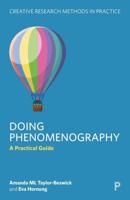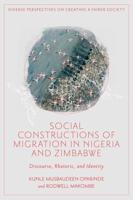Publisher's Synopsis
From "Facebook revolutions" to "Al-Jazeera uprisings," the outburst of popular activism across the Arab world has either been attributed to the media, drawn up by the media, observed through the media, or decontextualized by the media. Bloggers become icons, self-proclaimed experts becoming interpreters of unfolding events, stereotypes are cultivated, and autocratic regimes continue to subdue freedom of the press. The uprisings have become the most compelling media stories in recent memory. With so much at stake, the burden of relaying human narratives accurately and responsibly is a burden on all journalistic establishments worldwide. In a unique collection of essays that covers the expanse of the Arab popular protest movements, Mediating the Arab Uprisings leaves no stone unturned by offering spirited contributions that elucidate the remarkable variation and context behind the fourth estate's engagement with these mass protests. So while the public debate about the coverage of the Arab uprisings remain effervescent and polarizing, the essays in this volume go beyond the cursory discussion to historicize media practice, unsettle pre-existing suppositions about the uprisings, puncture the pomposity of self-righteous expertise on the region, and shatter the naivete that underlies the reporting of the uprisings. The volume includes essays on the tribulations of covering Syria, the contextualization and demythologizing of Facebook activism, the New York Times' reporting rituals on Palestine, the tumult of Egypt's media post-Mubarak, the ominous omnipresence of perennial media darling Fouad Ajami, the faltering of Al-Jazeera Arabic in the wake of the uprisings, the gendered sexuality of reporting Egypt, and journalism's damning failure on Iraq. The first volume of its kind on this pressing topic, Mediating the Arab Uprisings is a primer for the curious reader, a pedagogical tool for media studies and communication, and a provocative collection for the seasoned scholar. This initiative was supported by the Middle East Studies Program at George Mason University.










